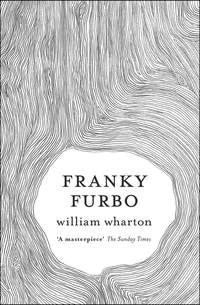
Полная версия
Pride
He has his tools lined up in a wooden box with a place for each tool. My dad has good tools from the days when he was a carpenter with his dad. There are two saws, one rip and one cross; two hammers, both Stanley, one carpenter, one mason; a level, chisels, everything you need to build. He has another wooden box he built for nails. Eight sections for different-sized nails, from four- to sixteen-penny with and without heads.
The old wood we’d take home at the end of the day and store in our cellar. We’d burn this in the furnace to save on coal during winter.
Next, Dad would bolt the wooden beam called a plate onto the wall. He’d stand on our ladder while I’d hold the bottom and hand things up to him. After that, we’d set in the cut-off-pyramid-shaped concrete foundation blocks to hold the posts for the new porch. These had bolts sticking straight up from the top where they were cut off. We’d set the posts up and Dad would stand up high on the ladder, with me holding it, so he could pound in the framing for the deck.
After that, we’d be up there, working from above, nailing down deckboards and putting on railings. About then, I’d start painting. Dad would nail along fast and we’d usually end up at about the same time. From start to finish we could put up a porch in under five hours.
At first, I hated losing my Saturdays, especially when it was school time. We worked Saturdays almost as long as a school day, and the only free day I’d have left would be Sunday. Sunday mornings are ruined by getting dressed, going to church, then having a big breakfast afterward. It’s eleven o’clock before I can even change into play clothes.
But I didn’t say anything. Then, gradually, I learned to like working with my dad. Not many kids have time alone with their dads.
He’d try to tell me the little important things about building, how to hold the hammer and swing from my wrist. You let the head of the hammer do the work. He showed me how to bear down with the saw only on the down stroke and just pull it back, letting the saw glide. He taught me how to load a brush with paint, how to hold it in my hands so I wouldn’t get blisters, and how to tip the handle in the direction I pulled the brush, stroking with the grain of the boards.
We’d talk about other things, too. He’s always asking about school, what I’m learning, if I like it. I don’t lie to him; I tell him how I hate school and don’t think I’m learning much, how I’m bored all the time.
Dad only went to eighth grade and keeps telling me over and over how there’s no chance if you don’t have a college education. As far as I’m concerned, eighth grade seems about right, only four more years not counting this one. By then, I could probably make enough money just building porches.
Dad put up a chart in the cellar and marked on it every month’s rent we were behind. When we started, there were thirty-five squares, seven across and five down. When we’d come in from work he’d cross one off. Once a month he didn’t; that was for the month we were living in.
Mr Marsden was the one who told us which porches to build. It was always the porches of people who were paid up with their rent. It wasn’t very fair; most of the worst porches were people who didn’t have any money. When some of those’d start to sag or fall down, we’d stop on the way to or back from a job and Dad would put a brace here, or a few nails there, to help hold them up. He did this for nothing. Lots of times people didn’t even know who’d fixed their porch.
After a while, you could walk down those alleys and tell from the new gray porches without stairs, the ones we built, just who were the people with jobs. Anybody selling things from door to door would be smart to walk down the alleys first and look to see who had any money.
During two years, from the time I was eight till now, we built more than seventy porches. Sometimes in the summer we’d do two porches in one Saturday. Those days we wouldn’t get finished until it was almost dark. We’d take our lunch and only come home for supper. Mom didn’t like us to do two but we were proud of ourselves.
We got all that back rent paid up. I remember the day we came back and Dad crossed the last box off. He gave me his paper chart, which was brown and marked with paint now. One of the thumbtacks was always falling out so there were a hundred thumbtack holes across the top of the paper. It was a used piece of butcher paper he pulled out of the trashcan and it had meat marks on the other side.
‘Here, Dickie, throw this in the furnace; we’re finished. From now on we’ll be getting ahead of the game.’
He stood there, wiping paint off his hands with some turpentine while I pulled open the furnace door and threw the paper in. It went up with a quick puff of light. That was just before this summer.
We kept working, building porches over the summer till we were a whole year ahead in rent. We finished just before school started. That last night when we came in, Dad stored his tools under his bench instead of setting them on top where he usually did.
‘This whole year is like money in the bank, Dickie. In a certain way, for a whole year this house is really ours. But we aren’t going to work any more Saturdays while school’s on; you can have your Saturdays for yourself, now. Maybe next summer we’ll go back to work if we have to.’
He stopped, smiled, pulled the straps of his white carpenter’s overalls down over his shoulders. He had regular clothes on under his overalls. It was summer but it was cold and wet that day. It wasn’t raining but it was wet enough so it was hard to make the paint stick. He was wearing his old sweater with the holes in the elbows and all raveled at the cuffs.
‘You remember this, Dickie. No matter how much you earn in your life you haven’t made one dime if you haven’t put some little bit aside. If you only earn it and spend it right off, you get nothing for your days, you’re just a working machine, working for somebody else. The money you save is work you did for yourself, and the only thing really worth buying is your own time. You remember that.’
By this time, Dad had gotten the letter from J.I. saying they were opening again and there was a job for him. They were going to pay him $37.50 a week. That’s more than twice as much as he got with the WPA. Waxing floors in banks all night he made $22, at the most.
I was there when he opened that letter. It’d come in the morning but Dad had already gone to sleep after coming home from the waxing job. He’d get up when we came home from school for lunch and we’d all eat together, then he’d go back to work after we had dinner.
Lunch in our house is usually just tomato soup, pepper pot, or Scotch broth and sandwiches but it was fun having Dad there. He’d always have some funny story to tell about waxing the bank floors. His favorite was how he’d push the machine, waxing away, and keeping his eyes open in case somebody had dropped a little bit of all that money on the floor during the day. He’d tell the story going along as if he’d really found some money, but it would always turn out to be a Wrigley gum wrapper, or somebody’s handkerchief or, one time, it was an empty pencil box. I know if Dad did find money he’d give it back to the bank, but it was fun listening to those stories; it was the way he told them.
His other stories were about the waxing machine breaking down. These machines were old and I think only my father could really keep them going. He worked with three other men but they didn’t know anything about machines, not even the boss, Roy Kerlin.
But this day, at lunch, Mom gave Dad the letter that came in the mail. She was all excited. Dad sat down and broke pieces of bread into his tomato soup; he put the letter on the table beside him and just looked at it, breaking bread into his soup. Mother couldn’t sit down and was leaning over his shoulder. It was one of those envelopes with a little cellophane window in it so you could see my father’s name and our address, 7066 Clover Lane, Upper Darby. It didn’t say anything about Stonehurst Hills.
‘Come on, Dick. Open it, I’ve been waiting on pins and needles all morning for you to wake up. Come on, open it. Don’t just stare at it like that.’
Dad looked up at Mom, put his hand over her hand on his shoulder. ‘I can’t think of anything J.I. could have to say to me I’m really ready to hear, Laura. Even if they say they’re sorry they shut down the place just because they weren’t making enough profit, laying everybody off, even somebody like me, with nine years’ seniority. I don’t really think I’d be interested even in that.’
But he used his knife to slit open the envelope; there was still some margarine on it. Then he read it out. He leaned back in his chair, speaking slowly like a priest reading the Gospel. He read how there was work and a position was open for him at the same bench and the salary was thirty-seven dollars and fifty cents a week. There was a lot of other stuff, too, about when and where he was to report and everything, but that was the main part.
Mom squeezed Dad around the neck from behind while he still held on to the letter. His bread was sinking into his soup. I looked over at Laurel; she wasn’t paying much attention. I couldn’t look at Mom or Dad, maybe she couldn’t either.
‘Thirty-seven dollars a week! But, Dick, that’s wonderful. You could stop working nights and wouldn’t have to spend all your Saturdays building porches any more. Aren’t you excited?’
Dad stared at the letter. He glanced up at me, then back at the letter.
‘I don’t mind building porches, Laura. We have a good time out there in the alleys, don’t we, Dickie?’
I nodded my head but I couldn’t smile. I was hoping he wouldn’t take the job. Going back to J.I. would be like saying ‘uncle’ in a fight.
It was a Wednesday when Dad got that letter. He was supposed to report at the main plant on Monday. It was all Mom and Dad talked about for the rest of that week. I tried to listen whenever I could, but a lot of the talking they did in their bedroom, and Laurel and I aren’t allowed in there unless we’re invited. Mom wanted Dad to take the job because it was such good money and it was hard to get jobs. Dad didn’t want to work there because of the way they fired him. One time coming down the stairs on Friday, he said, ‘But I hate that place, Laura. I hate everything about it. I don’t like the people I work with and I don’t like the work; it’s dirty, hard and dangerous. The whole building is dark and damp; they even have the windows painted blue so we can’t see out. It’s like a jail. I’ll bet they get Sanderson back as foreman, too. I can’t stand that guy.’
Saturday night at dinner he said he was going to take the job. He said he had a responsibility to all of us. He said we’d have enough money for things we needed and Mom wouldn’t have to worry so much. He promised us we’d go to Wildwood in the summer when he had two weeks’ vacation. It’d been four years since we’d been to the shore. I hardly even remembered it.
I still didn’t want him to work for J.I. and I was ashamed, but I couldn’t get myself to say anything.
‘But I told your mother, and I’m telling you kids right now; I’m going back there to start a union if there isn’t one, or join one if there is. A union is the only tool the working man has to fight back with.’
I know this doesn’t mean anything to Laurel, but I can tell it scares Mom. I don’t know why he has to tell us. Then, and right now, there are big fights between the companies and the unions. I guess the Depression made a lot of the men like Dad mad. It makes me feel better knowing Dad is going to fight J.I. even if he is going back, so I guess that’s why he told us, he was really telling me.
But I’d rather be building porches. We could build porches for other people than Mr Marsden. Then Dad’d be his own boss and I could work for him. Maybe I could even get out of going to school.
There was a workers’ union at J.I. The United Electrical Workers, called the UEW. Dad joined it right away and before long he was elected shop steward. This means he represents all the men on his floor to the bosses. He’s a kind of boss against bosses.
One night about a month after that, Dad came home late. The dinner was in the oven and Mom wouldn’t let us eat even though it was past seven o’clock, and usually we eat at five-thirty. Dad came in and one whole side of his face was swollen, with his lip cut and his shirt ripped. Mom almost went crazy.
Dad climbed upstairs to the bathroom and Mom ran right up behind him. When he came down he had some Mercurochrome and bandages on his face and a bandage on one finger that was bent back. He’d been beaten up just outside the gates of J.I. by some men the company hired to beat up union men, especially shop stewards like Dad. Dad ate his dinner quietly, grunting once in a while when he forgot and chewed on the wrong side; Mom kept crying.
After that, Dad starts meeting with other men and they go to work and come home together. Dad begins carrying a monkey wrench in his pocket, both to work and home again. He calls the people who beat him up ‘company goons’. In Popeye comics, there’s a character called Alice the Goon. She has a tiny head with no hair, a big body with thick arms and huge hairy feet. I keep thinking the company goons are something like Alice. Maybe Mom’s right; I’m probably too young to be afraid enough.
I start going up to meet Dad where he gets out of the car he rides in to work with the other men. It’s at the corner of Radbourne Road; Hershafts’ Little Store is right there.
I meet Dad outside the Little Store and walk home with him. Lots of times he stops in and buys me some candy or bubble gum or sometimes Tastykake cupcakes. He always says the same thing.
‘Share this with Laurel and don’t eat any of it until after dinner. You know what Mother would say.’
When he comes home, even when he isn’t beaten up, he’s always white-faced, tired and dirty. He told me there are showers and a place to change clothes at work but he wants to get home early and he likes to start with clean work clothes every morning.
We have an old washing machine and hand wringer in the cellar. Dad found that old washing machine in the dump and fixed it up. He rewired the motor. Dad can fix almost anything. Mom fills that washer with his clothes every Saturday and washes them separately; they’re too dirty to put in with other clothes.
Dad always comes home through the alley and in the cellar door. He takes off his shoes down there and scrapes the black grease off them, leaving them by the furnace to dry. Whatever he does at work I don’t know, but it makes his shoes oily and wet. I know he’s working on big circuit breakers but that doesn’t mean anything to me. They’re being built for a giant dam in Russia somewhere. Dad told me that. It makes him proud to work on something that’s going all the way to Russia.
Then Dad goes upstairs and takes a bath. I’ve watched him scrub his hands with a brush and 23 Skiddoo hand cleaner till he almost wore the skin off. When he comes down to dinner he’s always fresh in a white shirt with his sleeves turned up two turns to hide the frayed cuffs, but he looks clean and you’d never know he does such dirty work. The only thing that shows is he always has broken fingernails and bandages or a finger or thumb that’s been hurt. He usually has at least one finger black and the nail working its way off, too.
About that same time is also when I found Mr Harding. Mr Harding lived at 7048 Clover Lane, the same side of the street we live on, next to the areaway. Mr Harding used to have a good job selling Four Roses whiskey. He was a salesman and sold Four Roses to bars and restaurants, but he lost his job when the Depression came.
My mother said he lost it because he drank too much. Every bar or restaurant would give him a drink when he came in, and then he’d get drunk and couldn’t sell anything. Four Roses wanted him to sell whiskey but not drink it, I guess.
Anyway, Mr Harding was on relief like about half the people in our neighborhood but he never looked for work. His wife got a job as a waitress at a bar up on Westchester Pike called the Sail Inn. Dad said you sailed in and staggered out. She ran away with the bartender there, at least that’s what the kids in the neighborhood say.
One Saturday morning, early, I was meandering down the alley looking for things on trash day. Even with everybody so poor, there is always something worthwhile in the trash. If you wait until it gets to the dump, most of the best stuff’s already been picked over by the guys on the truck, so you need to go out before seven and look before they come.
It was the beginning of that summer when we were building those last porches, but we didn’t work early Saturday mornings because that’s the day when Dad and Mom sleep late.
One morning I found a perfectly good Sunbeam toaster worth twelve dollars new. My dad fixed it in about an hour. It’s the kind that makes a ticking sound like a clock while it’s toasting the bread, then pops up the toast when it’s finished.
I also found an old portable Victrola in a black leather case like a suitcase. It’s one of those ones you wind up. Dad fixed that, too, and I keep it in the cellar to play sometimes in the evenings when I’ve finished homework or in summer when it’s too hot outside. I play old records Aunt Sophia gave me. They have great titles like ‘Just Like Washington Crossed the Delaware, General Pershing Will Cross the Rhine’, and ‘It’s the Japanese Sandman’.
So I’m going down the alley rummaging through trashcans and sometimes peeking into a garage when I look into Mr Harding’s garage and see him sitting all alone in his car in the garage. He looks blue and fat but I just think he’s drunk, maybe drove home, then fell asleep in his car before he could get out and go upstairs.
I go on down the alley and then back up the other side. When I get to Mr Harding’s garage, I peek in and he’s still there. It doesn’t look as if he’s even moved. I’m still thinking he’s only drunk when I go into the garage. But then I see his eyes are open, staring through the windshield, and his tongue is purple and swollen, sticking out of his mouth. His thick hands are wrapped tight on the steering wheel.
I’m sure he’s dead when I see the vacuum-cleaner hose attached to the tail pipe and going in the back window. It’s the first dead person I’ve ever seen except for my grandmother, my mother’s mother, and Aunt Emmaline. But they were different, in white coffins, and with flowers all around.
I run out of the garage, leaving the two comic books and a torn-in-half Little Orphan Annie Big Little Book I’d found on the Greenwood side at the end of the alley. I run home trying not to cry and trying at the same time to get my breath. I’ve never fainted but I think I’m almost doing it.
As I go in the cellar door, I first begin thinking how I’m going to tell Mom; and how I can keep from telling Laurel. I stand there and think of waiting till Dad comes home and telling him, I also think of going across the street, at the corner, on the other side of Clover Lane, and telling Mr Fitzgerald. He’s a policeman. But then I think how it might be a murder and they might think I did it. So by the time I get to the top of the cellar stairs I’m already yelling for Mom and crying.
She’s washing dishes in her dressing gown and comes running, thinking I’m hurt or something. She drops to her knees the way she always does when she wants to really look at me and see if something’s wrong, although now, when she does that, my head’s higher than hers.
‘Mr Harding’s in his car in his garage and he’s dead.’
‘What do you mean he’s dead?’
She’s still not believing me. She doesn’t look scared.
‘He’s sitting in his car and he’s blue and his eyes are open. He’s not drunk. He has the tube of his vacuum cleaner going from the back window to the tail pipe where the poison gas comes out. I think he’s dead, Mom.’
I’m shaking now and can hardly talk. Dead people look so alive and at the same time so dead. Mom stands up. She’s not looking at me now. She grabs her dark reddish hair by both sides over her ears and stares at me with her wide green-gray eyes. Sometimes her eyes look like the green stuff that grows on the creek in summer, they’re that green; now they’re more white green.
‘Oh my God! Are you sure?’
She knows I’m sure. She grabs hold of me, gives me a short hug, then dashes out from the kitchen, through the dining room, the living room and out our front door over to the Guinans’ to telephone the police.
It turned out he was dead all right. They drove an ambulance and police cars right up our alley. My mom made me stay home through it all, but Doug Zigenfus saw it and said Mr Harding was so stiff they couldn’t straighten him out to put him on the stretcher, so he was on his back with his knees and hands out in front of him as if he was still sitting in his car, driving up a steep hill or a wall; driving straight up to heaven, maybe.
The police came and asked me a lot of questions. They wanted to know what exact time I found him but I didn’t know; I don’t have a watch. They made me guess and I said about seven o’clock. They wanted to know why I went into the garage and I told them about seeing Mr Harding sitting in there alone and about thinking he might be drunk.
They even wanted to know what I was doing walking around the alley that early in the morning. I didn’t want to tell them I was taking things from trashcans because that might be stealing so I said I was looking at some of the porches my dad and I had built. That wasn’t a lie because I was doing that, too. I like looking at those porches; it makes me think I’m doing something like a grown person, even though Dad does most of the work.
Then they left us alone.
There was just a tiny bit in the Bulletin and the Ledger. The Inquirer didn’t even mention it. But the little paper, our Upper Darby paper, had a whole column on the first page, with a picture of Mr Harding dressed up in a suit, looking younger. They even mentioned my name as finding him. I was a kind of hero for several weeks there. Then Elizabeth Zane from down the street got run over by an automobile at the corner of Clover Lane and Copely. She was almost killed so she spent more than a month in the hospital. After that, everybody pretty much forgot about Mr Harding; but I didn’t.
It was then I really started thinking about being dead and what it was to die. It didn’t look as if Mr Harding had gone to hell even though he had committed suicide and was condemned. He just looked as if he’d swollen up and turned blue.
When school started this year I was still thinking about Mr Harding a lot. I couldn’t get him out of my mind. I even dreamed about him and I hardly even knew Mr Harding. I cut his lawn a couple times for a dime but that’s all.
Sister Anastasia is our fifth-grade teacher. As I said, I hate school and one of the ways I get through some days is day-dreaming. I don’t do it on purpose. My mind just goes off on its own, dreaming, thinking about things. One morning, I’m thinking about Mr Harding during religion class. We have religion first thing and it’s the most boring of all because all we do is memorize parts of the Catechism. We don’t really talk about religion at all, like, What’s being alive all about? What’s it like to be dead? We’re only memorizing and I hate that.
We’re studying the seven capital sins, Pride, Covetousness, Lust, Anger, Gluttony, Envy and Sloth. I’m still not sure what covetousness and sloth are. Coveting is also part of two of the Ten Commandments. It has something to do with wanting something you can’t have, but how’s that different from Envy?
We’re all taking turns standing up and saying the answer to the Catechism question Sister Anastasia asks each of us. She asks each person the same question each time, although we all know what the question’s going to be. We have to stand up and wait while she asks that same dumb question. I sit in the first row and I’ve already answered, so I know I have time for myself; that’s when my mind takes off.







